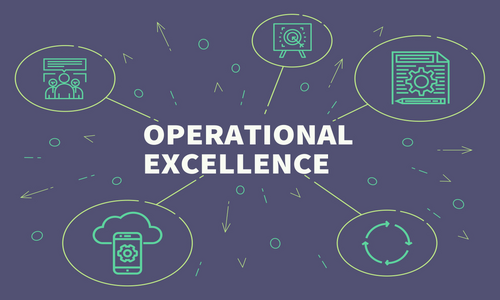Understanding the Core Principles of Operational Excellence | A Comprehensive Guide
Body

Operational Excellence is a fundamental concept in business management that focuses on creating a high-performance environment where continuous improvement is not just a goal but a routine practice. Companies that master operational excellence often find themselves better positioned to deliver higher value to customers, reduce costs, and maintain a competitive edge in the marketplace. This article delves into the core principles of operational excellence and provides a comprehensive guide to understanding and implementing them effectively.
The Essence of Operational Excellence
Operational excellence is more than just a buzzword; it is a mindset that permeates the entire organization. It involves aligning all aspects of business operations to achieve superior performance and efficiency. Companies that pursue operational excellence strive to create a culture where every employee understands the business's mission and contributes to its success. This culture is characterized by a commitment to continuous improvement, a focus on customer value, and a dedication to achieving long-term, sustainable results.
The Pillars of Operational Excellence
The foundation of operational excellence rests on several key pillars, each crucial for building a high-performing organization. These pillars serve as guiding principles that help businesses achieve their strategic objectives and maintain operational efficiency.
Customer Focus
At the heart of operational excellence lies a relentless focus on the customer. Organizations that excel operationally understand that their success is directly tied to their ability to meet and exceed customer expectations. This involves not only delivering high-quality products and services but also ensuring that every interaction with the customer is positive and value-driven. By prioritizing customer satisfaction, companies can build strong, long-lasting relationships that drive repeat business and foster brand loyalty.
Leadership and Organizational Culture
Effective leadership is critical to operational excellence. Leaders must embody the principles of operational excellence and set the tone for the rest of the organization. This involves fostering a culture of trust, accountability, and continuous improvement. When leaders prioritize these values, they empower employees to take ownership of their work and actively contribute to the organization's success. A strong organizational culture also encourages collaboration, innovation, and a willingness to embrace change.
Process Optimization
Process optimization is a cornerstone of operational excellence. It involves analyzing and improving business processes to eliminate waste, reduce inefficiencies, and enhance overall performance. Companies that excel in process optimization use data-driven approaches to identify areas for improvement and implement changes that streamline operations. This can include adopting lean methodologies, automating repetitive tasks, and leveraging technology to improve process accuracy and speed. By continuously refining their processes, organizations can achieve higher productivity and reduce operational costs.
Continuous Improvement
Continuous improvement is the practice of consistently seeking ways to enhance business operations. This principle is deeply embedded in the operational excellence framework and requires a proactive approach to identifying and addressing inefficiencies. Continuous improvement involves regularly reviewing processes, gathering feedback from employees and customers, and implementing small, incremental changes that lead to significant improvements over time. Organizations that prioritize continuous improvement are better equipped to adapt to changing market conditions and maintain their competitive advantage.
Employee Empowerment
Empowering employees is a vital component of operational excellence. When employees are given the autonomy to make decisions and take initiative, they are more likely to be engaged and motivated in their work. This empowerment fosters a sense of ownership and accountability, leading to higher levels of productivity and job satisfaction. Companies that embrace employee empowerment also benefit from a more innovative workforce, as employees are encouraged to share ideas and suggest improvements that can drive the business forward.
Implementing Operational Excellence in Your Organization
Achieving operational excellence requires a strategic approach and a commitment to embedding its principles throughout the organization. Start by clearly defining your company’s goals and aligning them with operational excellence principles. Ensure that leadership is fully onboard and prepared to lead by example, fostering a culture that supports continuous improvement and customer focus.
Next, invest in training and development to equip your employees with the skills and knowledge they need to contribute to operational excellence. Regularly review and optimize processes, using data and feedback to guide improvements. Finally, cultivate a culture of empowerment, encouraging employees at all levels to take ownership of their roles and contribute to the organization's success.
Conclusion
Operational excellence is a journey, not a destination. By understanding and implementing its core principles, organizations can create a culture of continuous improvement, deliver exceptional customer value, and achieve sustainable success. The road to operational excellence may be challenging, but the rewards – a more efficient, resilient, and competitive business are well worth the effort.










Comments